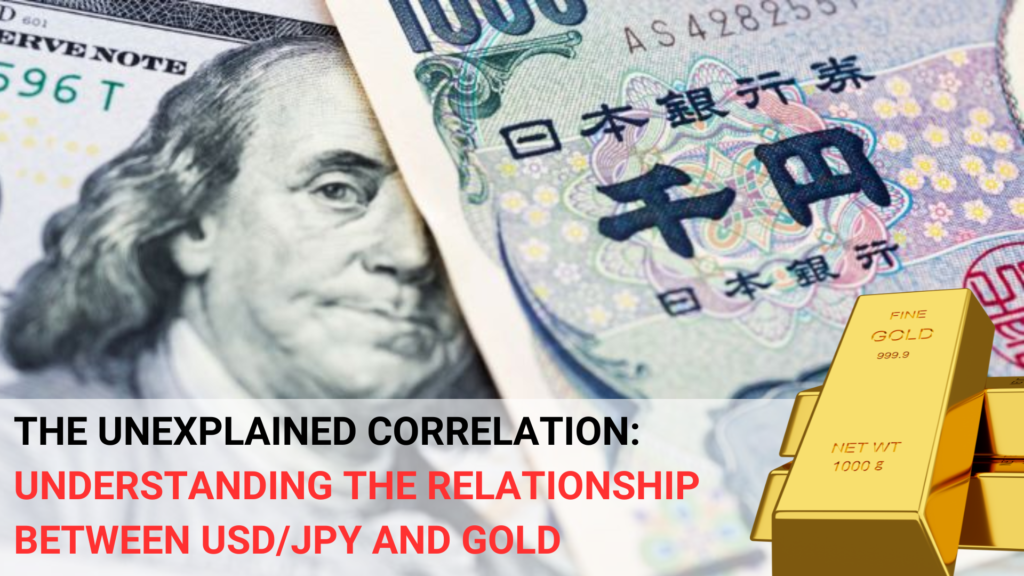
If there is a favourite commodity, every single trader would say the same thing.
“I’m interested in trading in gold”
Gold can be considered one of the favourite metal asset classes when trading in the Commodity market. It appeals to all trades ranging from intraday, technical analysts or basically anyone involved in the actual purchase of bullion.
It is sometimes called a safe haven currency and could be your safehold that may save your investment when the market is down.
However, many traders and analysts have seen that there is some unexplainable correlation between USD/JPY and the gold market.
Correlation between USD & Gold:
The price of gold is largely affected by certain factors which also include investor sentiments and economic factors as well. However, after this long, there isn’t any kind of specific official relationship between the two.
As with other commodities, gold is also considered as an asset. It has a certain intrinsic value, however, the value fluctuates constantly and sometimes in a volatile fashion. Many traders have noticed that the value of the dollar increases and, inversely the price of gold tends to fall in USD terms.
This phenomenon, just like any other ‘ghost story’ you’ve seen, has a logical explanation. In contrast, gold tends to increase in value as it becomes more affordable in other currencies when the value of the U.S. dollar declines. Conversely, as the value of the U.S. dollar moves lower, gold tends to appreciate as it becomes cheaper in other currencies. Demand for commodities tends to increase at lower prices.
The Correlation between Yen and Gold:
Similar to USD, there is a logical relation between gold and yen. Although gold and yen both share the status of safe haven, in a way it validates this correlation.
The correlation between the Japanese yen (JPY) and gold is often seen as a complex and dynamic relationship. While there is no fixed correlation between the two, they do exhibit some patterns of correlation at different times. It’s important to note that correlations can change due to various factors, including market conditions, economic events, and investor sentiment.
They tend to attract investors during times of market uncertainty or risk aversion. When global markets face turmoil or economic instability, investors often seek refuge in assets that are perceived as less risky. In such cases, both the JPY and gold may experience increased demand, leading to a positive correlation.
The JPY-gold correlation can be influenced by currency dynamics and economic factors specific to Japan. Japan is one of the world’s largest holders of gold reserves, and the performance of the yen can be influenced by its economic indicators, monetary policy decisions, and global trade dynamics. Changes in these factors can impact the relationship between the JPY and gold.
Conclusion:
There might not be a direct correlation however, certain factors such as economics, investor sentiment or even environmental factors could lead to fluctuation of both currencies making it go inversely proportional to each in rates.